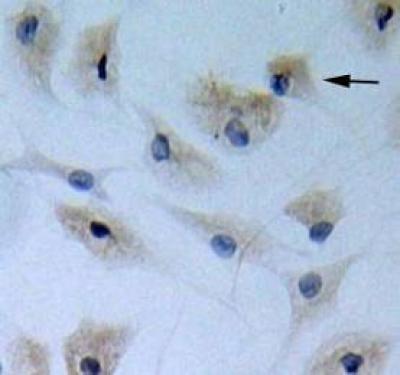There is evidence that under the normal circumstances, astrocytes participate in normal physiological activities and development, maintain neuronal environment, and exhibit therapeutic and repairing effects on brain injury and neurodegenerative disease. Previous studies have found that nerve cells differentiated from adipose-derived stromal cells after chemical induction have reduced viability, which produces influences on subsequent studies and application. Prof. Xiaodong Yuan, Kailuan General Hospital, Hebei United University, China demonstrated that after chemical induction, with increasing time, the apoptotic rate of adipose-derived stromal cells gradually increased, and the number of living cells gradually decreased, and the number of glial fibrillary acidic protein-, caspase-3- and caspase-9positive cells gradually increased and some adipose-derived stromal cells exhibited typical signs of apoptosis after differentiation. Therefore, the authors considered that caspase-dependent apoptosis is an obstacle to the differentiation of adipose-derived stromal cells into astrocytes and inhibiting apoptosis may be an important strategy for increasing the efficiency of induction. Related findings were published in Neural Regeneration Research (Vol. 9, No. 8, 2014).

Immunocytochemical staining revealed that at seven days after chemical induction, caspase-3 expression (arrow) was detected in the cytoplasm of adipose-derived stromal cells.
(Photo Credit: Neural Regeneration Research)
Source: Neural Regeneration Research